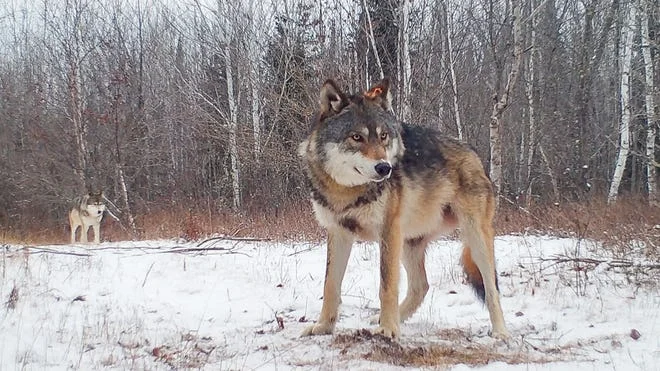
Gray Wolves in the Crosshairs: The Heated Debate Over Removing Federal Protections
The fate of America’s gray wolves is once again at the center of fierce political and scientific debate, as the U.S. House prepares to consider the newly advanced Pet and Livestock Protection Act. This legislation, championed by Colorado Rep. Lauren Boebert and Rep. Tom Tiffany of Wisconsin, proposes to delist gray wolves from the Endangered Species Act (ESA) and transfer management to state and tribal agencies—while notably preventing judicial review of the delisting decision.

At the heart of the controversy is a clash between those who celebrate the gray wolf's recovery as an ESA triumph, and those who caution that removing protections risks undoing decades of conservation progress. Rep. Boebert hails the wolves’ apparent rebound as a success story: “The science is clear. The wolf is recovered.” She points to the wolf population’s rise from fewer than 1,000 in 1967 to thriving numbers in pockets across the West and Great Lakes regions—a sentiment echoed by ranchers and organizations like the Colorado Woolgrowers Association. Advocates for delisting argue that giving states control will bring adaptable management, balancing wolf preservation with rural conflicts, especially livestock depredation.

But the bill faces stiff opposition from Democrats and environmental groups, who warn that recovery is not uniform nationwide. Rep. Val Hoyle (D-Oregon) criticized the proposal, noting that “while some wolf populations in a few, specific areas are doing well, others are not.” She and others argue that previous delistings led to aggressive state hunting practices, sometimes with bounties, that could again decimate fragile populations. Furthermore, critics contend that removing judicial review undermines both science and critical stakeholder involvement, including tribal consultation. “Congress is not better equipped than wildlife biologists to determine a species’ recovery status,” Hoyle declared, calling for decisions grounded in comprehensive, peer-reviewed scientific data and collaboration.
Interestingly, the legal tug-of-war over wolf status is nothing new. Since their original ESA listing in 1978, gray wolves have bounced between federal and state control as courts repeatedly rejected government attempts to delist, citing failures to ensure species-wide recovery. Most recently, court rulings vacated the 2020 Trump administration delisting, prompting ongoing legal and legislative battles. Federal officials are now developing a nationwide recovery plan, due by year’s end, integrating science and diverse voices.
The U.S. Fish and Wildlife Service’s 2024 assessment found roughly 2,797 wolves in the western states and over 4,000 in the Great Lakes region, yet they remain absent in vast portions of their historical range. The debate now before Congress raises difficult questions: Have wolves truly achieved stable recovery, or does this move risk unraveling a hard-won ecological success?
What do you think? Is the Pet and Livestock Protection Act a chance to celebrate and localize wolf management, or a threat to one of America’s most iconic endangered species? Share your thoughts and join the conversation below!